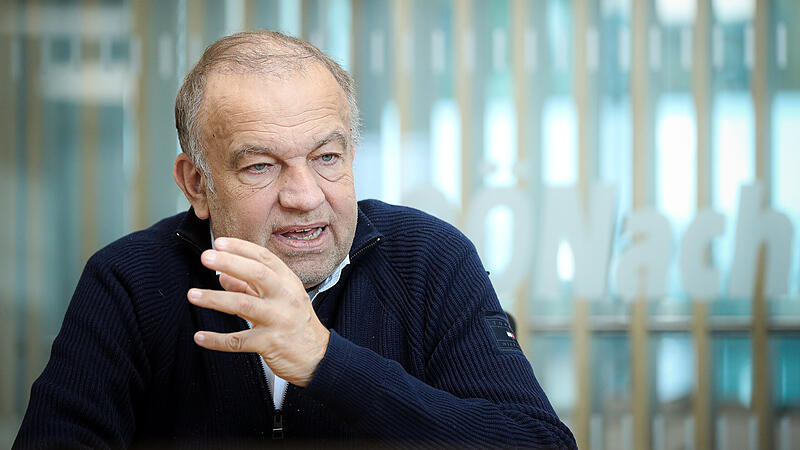With such an “event of the century” it would be “questionable” if it were “not passionately discussed,” says JKU Rector Meinhard Lukas. The “hard work” now follows, because the concept is more like a “vision”, regardless of what is available at the location.
“We didn’t mince our words,” the rector of the Johannes Kepler University (JKU) makes no secret of the fact that there are actually more unanswered than answered questions about the new university entitled “Institute of Digital Sciences Austria”. According to politicians, it should start with the winter semester 2023/2024, the heavily criticized founding law was passed in the National Council on July 8th. Some “significant concerns” were still resolved. According to Lukas, the original ministerial draft did not provide for the new TU to be bound to the overall Austrian development plan. For him it would have been “strange if ‘the new kid on the block’ didn’t have to follow these rules”.
It was also particularly important that the universities most affected, such as the JKU in Linz or the technical universities in Austria, “be institutionally involved in the founding process”. Therefore, there is now “a separate advisory board alongside the founding convention, in which these universities are represented, in order to create a balance of interests”. Lukas doesn’t want to deny that his university had “sympathy” for its own expansion. He refers to the JKU’s development plan, which was unanimously approved years ago, according to which “in the area of research and teaching, digital transformation is our most important university-wide focus”. For the TU, digital sciences is “their reason for being”. It must have a “system-forming” effect, he draws a comparison to the mining universities. For the “Montan-University of the 21st century” he sees the data as a raw material that has to be “mined and refined”.
“Constructive cooperation” asked
However, the “unresolved question” is current, how to “bring obvious overlaps between the JKU and the TU into a constructive cooperation”. According to Lukas, the concept paper did not have to answer how the TU will fit into the location, that will now be the most urgent task. He therefore speaks more of a “vision paper”. The concern of politicians – as the client of the paper – was to give the topic “digital transformation such importance” by dedicating a separate university to it.
And obviously it has to be quick. The appointment and constitution of the founding convention as well as the announcement and appointment of the position of the founding president are to take place before the end of this year. But the TU can’t give more than a “first sign of life” in the first year, Lukas slows down the pace. “First studies in October 2023” are “completely unrealistic”. The construction will “require an unbelievable amount of patience, and business and industry will also need them in terms of the hoped-for skilled workers”.
“change of pace necessary”
Because Lukas warns: If you don’t take the time, “the quality will suffer massively. With all the speed that politics has set, a change of pace will definitely be necessary now”.
After a lot of upheaval in Linz, Lukas decided in May not to make use of the possibility of a shortened appointment procedure for a third term as rector of the JKU. This leads to a proper advertisement of the function. He also expects the position of TU founding president to be advertised in the fall. But “interesting positions” would not only be given in Upper Austria if Lukas wants to keep all options open professionally. “Of course I can also imagine leaving Linz, that depends on the task and how exciting it is.” The “potential” of a future task is decisive for him. It was only in an application process that “opportunities” could be identified for being “meaningfully active”. This also applies to the post of rector at the JKU.
After the accusation that the appointment of the new rector of the University of Graz may have involved politically motivated posts, Lukas emphasizes: “I believe that the Austrian public universities are to a large extent immune to party political influence.”
Source: Nachrichten




